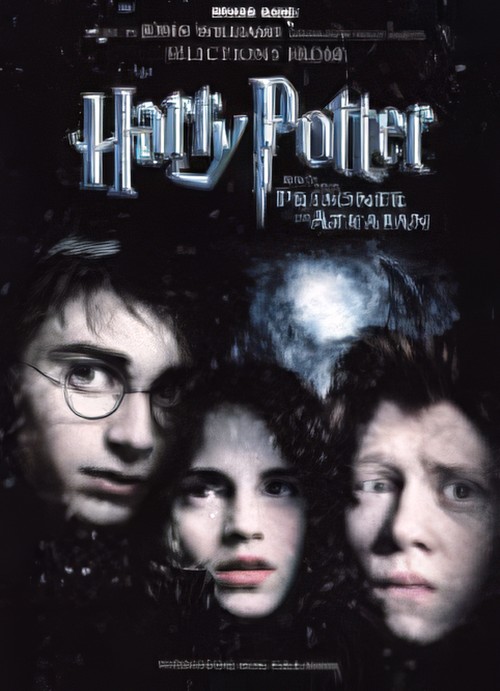Results
-
 £22.50
£22.50Beecher Variations (Brass Band - Score only) - Bulla, Stephen
In this beautiful composition, melodic fragments of the hymn tune Beecher are morphed into a series of variations, showing the melody in various moods from expressive, then quiet and soft, to bright and triumphant in the end. Written as a test piece in the 4th division for the Dutch Brass Band Championships in 2015, the music features challenging solo parts for cornet, soprano cornet, flugelhorn and euphonium. A great work for the concert or contest stage!Duration: 12.00
Estimated dispatch 7-14 working days
-
 £119.95
£119.95Call of the Cossacks (Brass Band - Score and Parts) - Graham, Peter
Call of the Cossacks is part of the series of 'travelogue' features by Peter Graham, following in the footsteps of Cry of the Celts and Windows of the World. The Cossacks were a nomadic people whose ethnic makeup included Ukrainians, Tartars, Poles and Jews. A similarly wide range of Eastern European folk music features in this work, from Gypsy to Klezmer. Includes: Procession of the Tartars; Gypsy Dream; Cossack Fire Dance; Doyle's Lament; Cossack Weddig Dance. Each movement can be programmed separately. Recorded on Polyphonic QPRL235D Master Brass Vol.23. Duration: 10:00
Estimated dispatch 7-14 working days
-
 £42.95
£42.95CU CHULLAIN (Brass Band) - Jenkins, Karl - Small, Tony
from Adiemus iv - The Eternal Knot. Adiemus is an extended choral-type series of works based on European classical tradition, but where the vocal sound is more akin to 'ethnic' or 'world' music. Karl Jenkins ingeniously invented the language used in the entire Adiemus project. Cu Chullain is a movement from ADIEMS iv - The Eternal Knot. Cu Chullain (pronounced 'Koo Kullan') is the foremost hero of the Ulster Cycle, a collection of prose and verse romances which forms one of the major cycles of Irish literature. The epitome of Celtic valour, Cu Chullain is portrayed as the ideal chieftain and defender of his tribe. Possessing extraoridinary powers which he uses solely for the benefit of his people, he forms a bridge between the world of the gods and that of humas. Duration: 4:20 approx
Estimated dispatch 7-14 working days
-
 £112.95
£112.95EARTHRISE (Brass Band - Score and Parts) - Clarke, Nigel
Earthrise is the name of one of the most iconic photographs in history. The original NASA image numbered AS8-14-2383 was one of a series of photographes taken by William Anders and the Apollo 8 crew on 24 December 1968 during the first manned mission to the moon. Earthrise is written in one condinuous movement but divided into three sections.Duration: 16:15Suitable for Championship Section Bands
Estimated dispatch 7-14 working days
-
 £44.95
£44.95EARTHRISE (Brass Band - Score only) - Clarke, Nigel
Championshipo Section. Earthrise is the name of one of the most iconic photographs in history. The original NASA image numbered AS8-14-2383 was one of a series of photographes taken by William Anders and the Apollo 8 crew on 24 December 1968 during the first manned mission to the moon. Earthrise is written in one condinuous movement but divided into three sections. Duration: 16:15
Estimated dispatch 7-14 working days
-
 £118.99
£118.99Elegy I (Brass Band - Score and Parts)
Elegy I 'Jealousy' has been named after John Donne's poem of the same name. This English poet (1572-1631) wrote an entire series of elegies, each with its own theme. Jealousy can trigger various emotions, ranging from disappointment, grief, or regret, to madness and anger. All these emotions have been incorporated into this composition. Jacob de Haan was inspired by three different works of art: a poem (the aforementioned poem by John Donne), a painting by the Norwegian painter Edvard Munch (Jealousy in the Garden) and an old French chanson about jealousy (Je ne l'ose dire) by the sixteenth-century French composer Pierre Certon. The music refers repeatedly to this chanson - sometimes through key notes from the melody that serve as the starting point for new, isolated themes and sometimes through quotations of the original version
Estimated dispatch 7-14 working days
-
£64.99
Glee Showstoppers (Brass Band - Score and Parts)
The hit TV series Glee keeps rolling along with a talented and engaging cast performing contemporary versions of classic rock hits. Here is a medley of some of their most memorable numbers - Jump, Total Eclipse of the Heart, The Safety Dance and Dream On. 07:00
Estimated dispatch 7-14 working days
-
 £42.95
£42.95GROUND FORCE (Brass Band) - Parker, Jim
Title music from the popular TV series.
Estimated dispatch 7-14 working days
-
 £45.00
£45.00Harry Potter and the Prisoner of Azkaban (Brass Band - Score and Parts) - Williams, John - Harper, Philip
Harry Potter and the Prisoner of Azkaban is the third book in the Harry Potter series by author J. K. Rowling. The book was published in 1999 and the film, based on the book, was released in 2004. This is Philip Harper's brass arrangement of a selection of the music from the film.Suitable for Advanced Youth/3rd Section Bands and aboveDuration: 4 minutes
Estimated dispatch 7-14 working days
-
£59.99
Honneur (Brass Band - Score and Parts)
This march attempts to portray the role of Honour as a quality of character using highly energetic rhythms and strong melodic lines. The opening themes, together with those developed in the first section, perfectly reflect this significant human quality. A short bridge passage consisting of a series of sonorous chords played by the higher instruments in the band is soon taken up by the lower sections. The main theme appears in the second part of this march and is a melodic duet for Eb soprano cornet and solo cornet. 04:45
Estimated dispatch 7-14 working days
